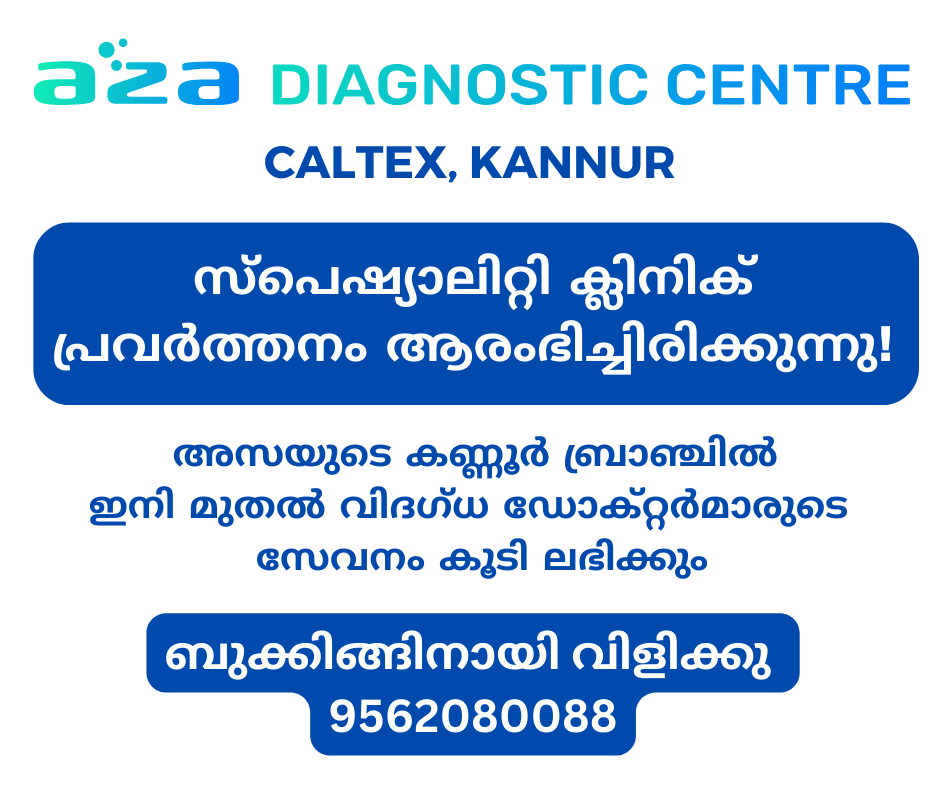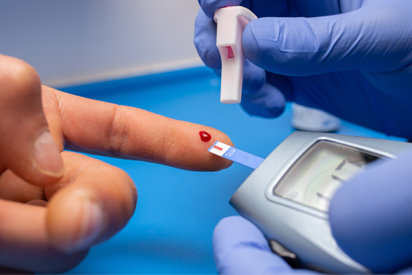
2024-02-08
What are the necessary diagnostic tests for senior citizens?
Regular health checkups are important for all age groups. Now that we have seen an increased number of late diagnoses that lead to unsuccessful treatment, the importance of timely diagnosis is increasing. Regular check-ups are required to diagnose any condition early on or to simply manage current issues.
Diagnostic tests for senior citizens are important because they play a crucial role in the health and well-being of seniors. As we age, our bodies undergo a variety of changes that make us more vulnerable to certain diseases and ailments. That's why diagnostic testing is critical for early detection and prevention. Diagnostic tests vary between fast diagnostic tests and standard diagnostic processes. Rapid diagnostics produce speedy results, allowing for timely medical intervention if necessary; traditional diagnostic procedures, on the other hand, may take longer but provide a more complete picture of a person's health.
Here, we are going to discuss some of the most common diagnostic tests for senior citizens:
Hemogram or CBC
A hemogram, also known as a complete blood count (CBC) test, gives important information about a person's blood and overall health. CBC is a very common sort of blood test that offers information on each blood component and can be used to diagnose a variety of medical issues, including anaemia, bleeding disorders, and infections. Hemograms measure different components of the blood, which are:
- RBCs (red blood cells) that carry oxygen to every part of the body
- WBCs (white blood cells) that are responsible for fighting infections and diseases
- Platelets, which help with blood clotting
By studying the many components measured in a CBC, physicians can acquire significant insights concerning an older citizen's health status. This test takes only a few minutes, and you can go back to your regular routine with little to no delay.
Blood glucose test
Checking blood glucose levels is an important diagnostic test for senior citizens, especially considering the widespread presence of diabetes in this age group. Regularly monitoring blood glucose levels aids in the early detection and control of diabetes.
Diabetes (type 2) is a lifestyle disease that impairs the body's capacity to control blood sugar levels. Persistently high or low blood sugar levels can result in serious health consequences, including kidney problems, cardiovascular ailments, and nerve damage. The glucose test measures the level of glucose present in your blood, which will help with monitoring and controlling diabetes through diet, medication, and lifestyle.
Lipid profile
A lipid profile is a diagnostic test used to evaluate the cardiovascular health of senior citizens, assess cholesterol levels, and determine the risk of heart disease. Lipids, including cholesterol and triglycerides, are crucial for our body to function, but high levels of cholesterol can lead to health issues, particularly cardiovascular risks like heart attacks and strokes. The test evaluates total cholesterol, good cholesterol (HDL), bad cholesterol (LDL), and triglycerides. According to the results, lifestyle modifications and medications are recommended to lower cholesterol levels and reduce the risk of cardiovascular diseases.
Thyroid test
A thyroid test is a blood test that measures the level of hormones such as thyroxine (T4), triiodothyronine (T3), and thyroid stimulating hormone (TSH) that are produced by the thyroid gland in the blood. The imbalance of this hormone can have a severe impact on our health, including conditions like hypothyroidism and hyperthyroidism. A thyroid test is one of the necessary diagnostic tests for senior citizens.
Liver function tests
Liver function tests are blood tests that evaluate a senior's liver function, and these tests typically include alanine transaminase (ALT), aspartate transaminase (AST), gamma-glutamyl transferase (GGT), alkaline phosphatase (ALP), serum bilirubin, prothrombin time (PT), the international normalised ratio (INR), total protein, and albumin.
BMD test
Our bones become more fragile as we age, increasing our susceptibility to osteoporosis and fractures. The bone mineral density (BMD) test is a vital diagnostic tool that measures bone density, helping diagnose osteoporosis and predicting fracture risk. X-rays or ultrasounds are used to measure mineral content in bones, and then they are compared to the average bone density of the patient's age and sex to determine if they are at risk of osteoporosis.
Kidney function test
Kidney function tests are a series of tests that assess the health and function of the kidneys. These tests assist physicians in diagnosing kidney illness, monitoring kidney function, and making the right treatment decisions. The BUN (blood urea nitrogen) test, creatinine test, glomerular filtration rate (GFR) test, urinalysis, and urine albumin test come under the kidney function tests.
Electrolyte test
An electrolyte test is a blood test that detects electrolyte imbalances in the body. Electrolytes are ions and minerals present in the blood, and they conduct electrical impulses; sodium, potassium, bicarbonate, and chloride are all examples of electrolytes. The test is sometimes conducted during a routine physical examination or as part of a comprehensive set of tests. Treatment depends on which electrolyte is out of balance and the level of imbalance.
Vitamin and nutrient deficiency tests
Nutrient deficiencies in seniors, such as vitamin D, B12, and calcium deficiencies, can cause bone weakness, weariness, and reduced cognitive function. Screening tests are critical for identifying these deficiencies and determining what supplements to take. They are often done using a blood sample and provide vital information about vitamin and nutrient deficiencies in our bodies.
Cardiovascular assessment
Cardiovascular health is crucial for everyone, but especially for seniors, as age-related changes can increase the risk of heart disease. Regular evaluation is recommended to identify potential issues and take preventive measures. Tests like electrocardiograms (ECGs), echocardiograms (non-invasive ultrasound images), and stress tests are commonly done. ECGs record the heart's electrical activity, while echocardiograms diagnose conditions like valve problems or heart failure. Stress tests assess heart function during physical activity and evaluate the risk of coronary artery disease.
In short, regular diagnostic testing is critical for senior citizens to look after their health and spot potential health problems early on.
We will diagnose!
Reliable and accurate test results are a crucial part of a good treatment plan.
So choosing a diagnostic centre should be done with a lot of care, but you don't need to worry about finding the best diagnostic centre to get your check-ups done; you have AZA!
We are a NABL-accredited, multi-specialty diagnostic centre with our headquarters in Calicut. But we are now in Kannur! And we are already the best laboratory in Kannur, with our outstanding technical expertise and high-quality services.
If you are looking for a premium lab in Kannur with an excellent array of health checkup packages and services, ultra-modern diagnosing methods, and skilled professionals, AZA is your lab! We are aware of the gravity of the influence we have on your treatment journey and are determined to give you the most accurate and reliable results and exceptional support along the way.
Check out our packages, including the diagnostic tests for senior citizens. We will diagnose you!



